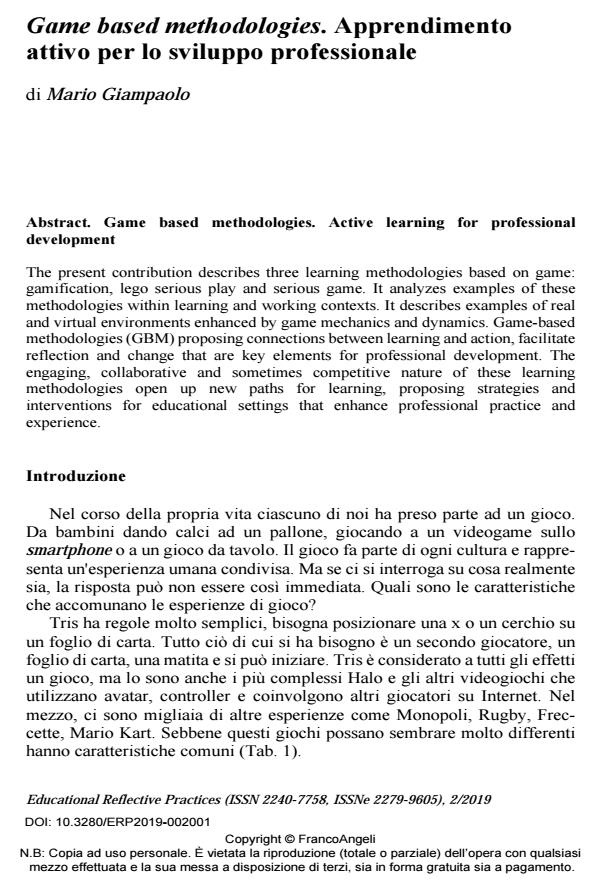Game based methodologies. Active learning for professional development
Journal title EDUCATIONAL REFLECTIVE PRACTICES
Author/s Mario Giampaolo
Publishing Year 2020 Issue 2019/2
Language Italian Pages 14 P. 5-18 File size 354 KB
DOI 10.3280/ERP2019-002001
DOI is like a bar code for intellectual property: to have more infomation
click here

FrancoAngeli is member of Publishers International Linking Association, Inc (PILA), a not-for-profit association which run the CrossRef service enabling links to and from online scholarly content.
The present contribution describes three learning methodologies based on game: gamification, lego serious play and serious game. It analyzes examples of these methodologies within learning and working contexts. It describes examples of real and virtual environments enhanced by game mechanics and dynamics. Game-based methodologies (GBM) proposing connections between learning and action, facilitate reflection and change that are key elements for professional development. The engaging, collaborative and sometimes competitive nature of these learning methodologies open up new paths for learning, proposing strategies and interventions for educational settings that enhance professional practice and experience.
Mario Giampaolo, Game based methodologies. Apprendimento attivo per lo sviluppo professionale in "EDUCATIONAL REFLECTIVE PRACTICES" 2/2019, pp 5-18, DOI: 10.3280/ERP2019-002001